[ad_1]
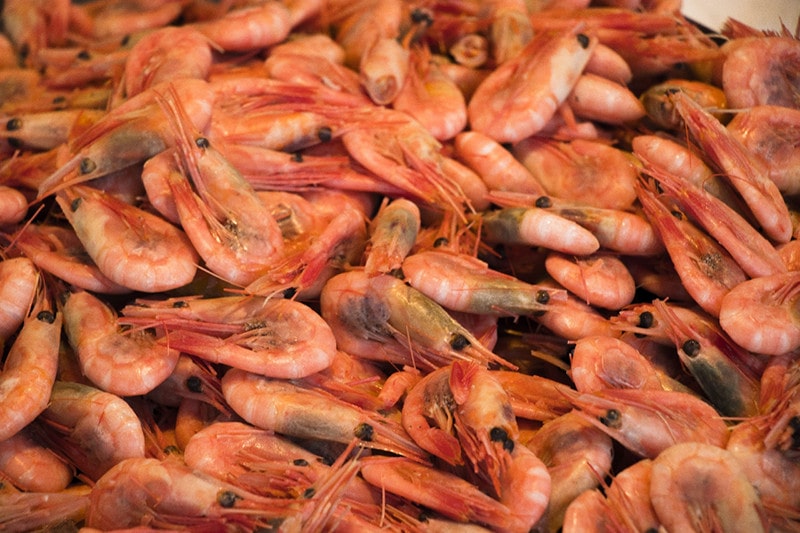
The realm of bearded dragons is fascinating, especially when it comes down with their dietary needs. One question often pops up among bearded dragon owners: “Can bearded dragons eat shrimp?” The response is a little tricky since you can find benefits and downsides of including shrimp inside a bearded dragon’s diet. This short article look into bearded dragons’ dietary habits, shrimp’s vitamins and minerals, and expert opinions about them.
Click below to jump ahead:
Understanding a Bearded Dragon’s Diet
Bearded dragons are omnivores, meaning they consume a mix of plant and animal matter. In the great outdoors, bearded dragons consume various insects, small rodents, fruits, and vegetables. A well-balanced diet is vital due to their health and wellness, and introducing new foods should be through with caution.
Shrimp is really a nutritious food that is saturated in protein and possesses several nutritional supplements, including selenium, vitamin B12, and iron. These nutrients are crucial when it comes to all around health and development of bearded dragons. However, the vitamins and minerals alone does not see whether it is safe for bearded dragons for eating shrimp.
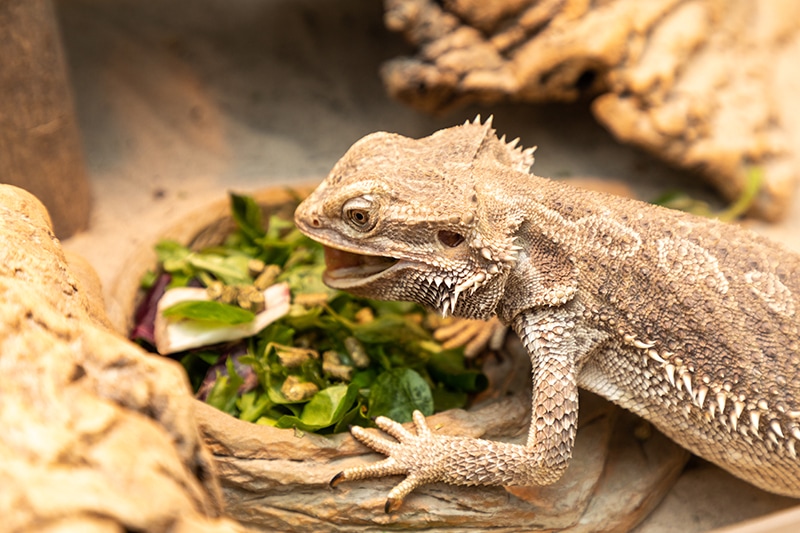
Risks of Feeding Shrimp to Bearded Dragons
While shrimp does offer some nutritional benefits, such as for example protein, vitamins, and calcium, you can find potential health risks that pet owners should become aware of.
Bacteria and Parasites
One significant risk is the fact that shrimp can hold unwanted organisms, germs, or parasites, particularly if served raw. This might result in intestinal problems in bearded dragons. Therefore, it is recommended that shrimp should always be cooked before feeding to cut back the possibility of bacterial or parasitic infections.
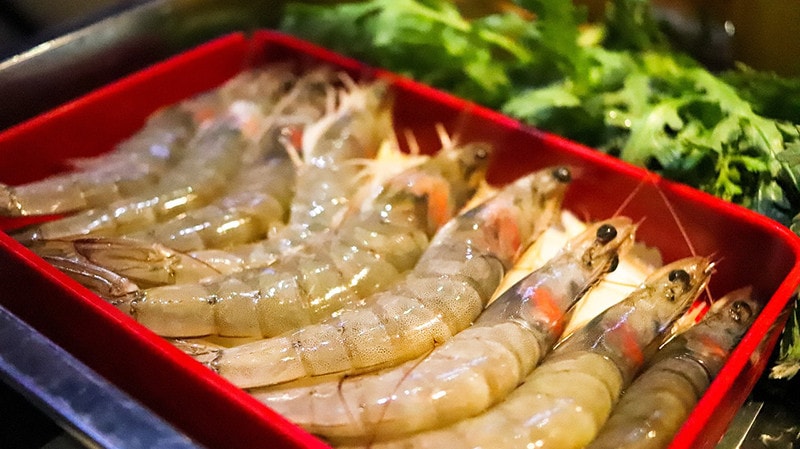
Digestive Issues
Another concern is the fact that bearded dragons might have trouble digesting the hard exoskeleton of shrimp. This might potentially result in impaction, a critical condition in which the intestinal tract gets blocked.
Potential for Overconsumption of Protein
Shrimp has lots of protein. While protein is a vital element of a bearded dragon’s diet, consuming an excessive amount of as time passes can cause medical issues such as for example diabetes, obesity, and liver disease. In severe cases, heart failure may possibly occur.
Toxicity Concerns
Certain kinds of shrimp, like those present in tropical environments, can be toxic to bearded dragons. It may present other risks such as for example mercury poisoning. Therefore, it is vital to make sure any shrimp fed to bearded dragons is safe and ideal for their consumption.
Expert Opinions
The topic of feeding shrimp to bearded dragons often generates a varied variety of opinions among specialists in reptile care. Veterinarians and reptile enthusiasts have debated the professionals and cons of including shrimp inside a bearded dragon’s diet. An important quantity of these experts advise against feeding bearded dragons shrimp entirely. They cite various potential risks related to feeding shrimp to bearded dragons, including the likelihood of unwanted organisms or parasites which could adversely impact the health associated with pet. Additionally, they highlight concerns about digestive issues, as bearded dragons might battle to break up the hard exoskeleton of shrimp, potentially resulting in serious conditions like impaction.
However, there is certainly another way of thinking among some experts who think that shrimp may be incorporated into a bearded dragon’s diet, albeit in moderation. These proponents argue that shrimp, when properly prepared, can offer a way to obtain protein as well as other nutrients useful to the fitness of the bearded dragon.
The key, they emphasize, is within the preparation. The shrimp must certanly be cooked thoroughly to eradicate any unwanted organisms or parasites, and it also should always be served without having any additives that would be damaging to your pet. They even underline the necessity of portion control, cautioning that shrimp should only make up a little an element of the bearded dragon’s diet to stop overconsumption of protein as well as other potential medical issues.
The Debate: Raw vs Cooked Shrimp
The debate between feeding bearded dragons raw versus cooked shrimp is ongoing. Some argue that raw shrimp could carry unwanted organisms or parasites, making cooked shrimp the safer option. Others think that cooking shrimp may reduce its vitamins and minerals. If you choose to feed your bearded dragon cooked shrimp, it ought to be prepared without having any salt, spices, or any other additives.
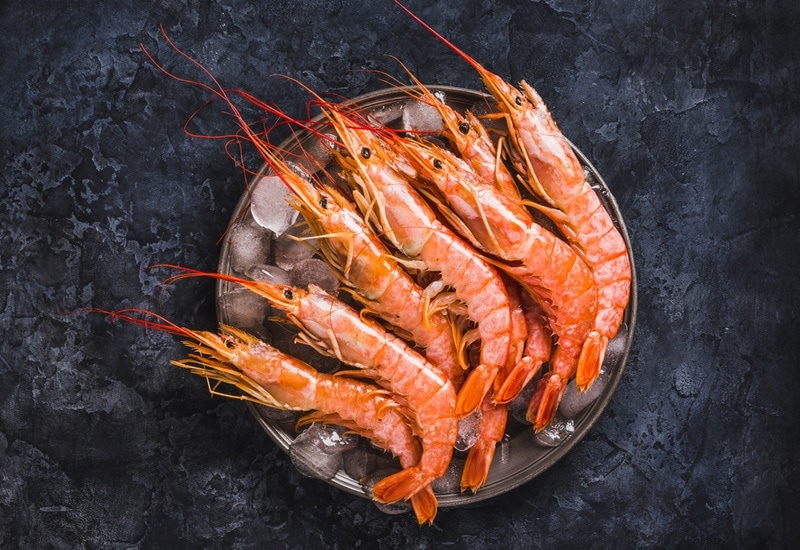
Safe Feeding Guidelines
If you decide to feed your bearded dragon shrimp, it is crucial that you achieve this safely. Shrimp should make up just a small element of your pet’s diet and really should not be the principal way to obtain food. Always observe your bearded dragon closely after introducing any new food with their diet and speak to your vet in the event that you notice any alterations in their behavior or health.
Potential Alternatives to Shrimp
There are a great amount of other food options that will provide similar nutritional advantages to shrimp. Crickets, mealworms, and vegetables like bell peppers and leafy greens are typical excellent selections for bearded dragons as they are typically easier in order for them to digest.
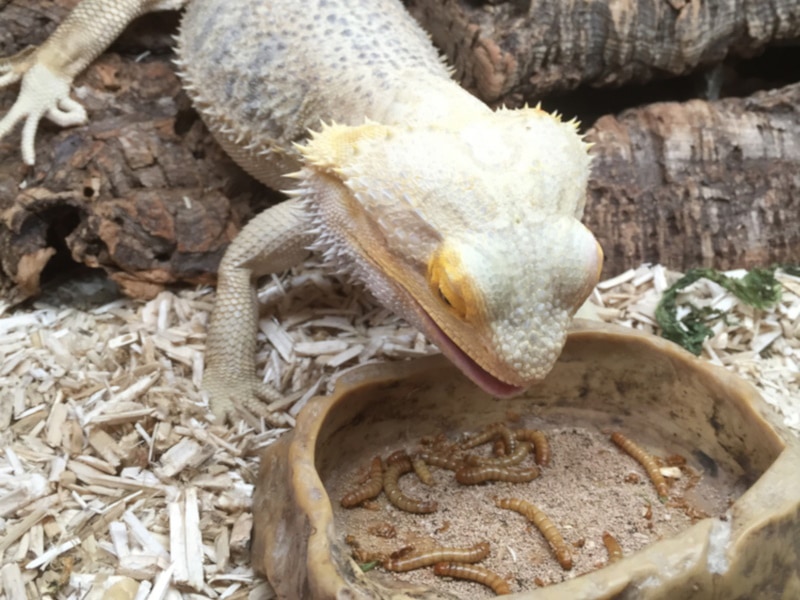
Signs Your Beardie is not Feeling Well
Bearded dragons are usually robust and healthy pets. However, like most animal, they may be able experience health issues. Understanding the signs that your particular bearded dragon is not feeling well will allow you to catch potential issues early and seek veterinary care promptly.
Here are a handful of indicators that your particular beardie could be beneath the weather.
- Loss of Appetite: A decline in your bearded dragon’s appetite can be quite a indication of illness. Although it’s normal for beardies for eating less during periods of brumation (a type of hibernation), a sustained not enough desire for food away from these periods could indicate a challenge.
- Changes in Behavior: Bearded dragons are notable for their lively personalities. When your normally active pet becomes lethargic, or you notice an abrupt improvement in its behavior, this might be an indication of illness.
- Irregular Stool: the look of your bearded dragon’s stool can offer clues about its health. Loose, foul-smelling, or infrequent stools could indicate digestive issues.
- Physical Changes: Physical changes such as for example losing weight, swollen limbs, bumps, sores, or alterations in the eyes (like puffiness or discoloration) can all signal potential health issues.
- Changes in pores and skin or Texture: While bearded dragons naturally shed their skin, alterations in color or texture outside the shedding period can be quite a cause of concern. Be cautious about unusually dark coloration, patchy skin, or rough texture.
- Difficulty Breathing: Should your bearded dragon is breathing heavily, making wheezing sounds, or keeping its mouth open frequently, it might be experiencing respiratory issues.
- Changes in Activity Level: A decline in activity level or a rise in sleep may be signs that your particular bearded dragon is not feeling well.
Conclusion
Shrimp is yummy, of course you offer it to your beardie, there’s a high probability they’ll eat it, even when may possibly not be the ideal for them. While shrimp can offer certain nutritional advantages to bearded dragons, it is crucial that you weigh these resistant to the potential risks. Always consult well a vet or even a pet care expert before introducing new foods into the bearded dragon’s diet. Remember, a heathier eating plan is vital to a happy and long-lived bearded dragon.
Featured Image Credit: Jumpstory
[ad_2]



